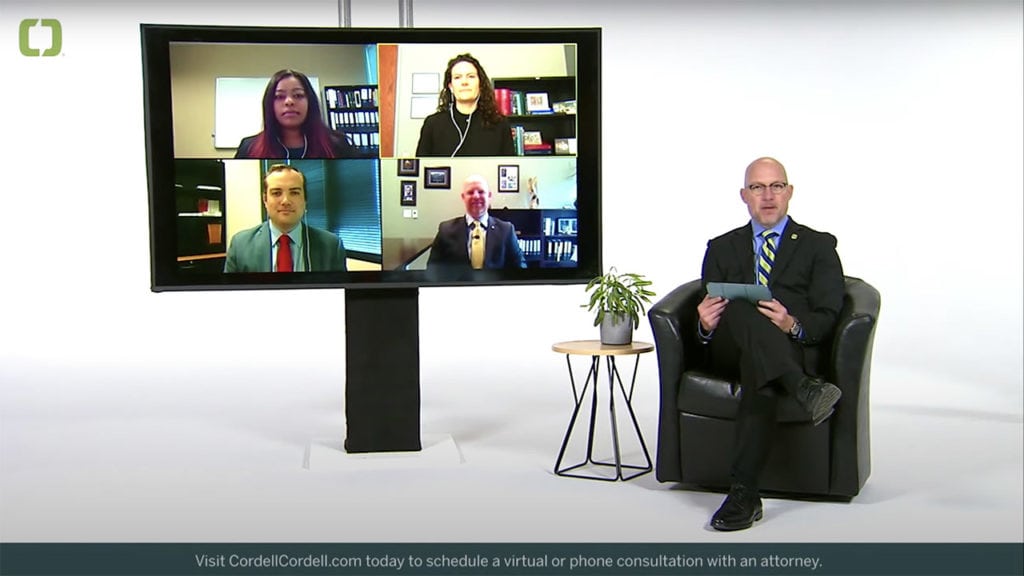
Industry Insights
Don’t Say Goodbye to Virtual Events Anytime Soon
Don’t Say Goodbye to Virtual Events Anytime Soon
When the worldwide pandemic forced businesses to pivot on a dime, some changed focus or developed a new line of products. Others shut their doors, canceled annual events and hoped for the best. Nearly all of them shifted from in-person everything to virtual.
If you’ve been anticipating a return to the office and a new line-up of conferences and trade shows—a return to normal—we’ve got news for you.
There is no normal. Or, rather, there’s a new normal; virtual events are here to stay. Here’s why.
A Video Content Strategy Goes Beyond a Single Getting Familiar with Online Events and Virtual Event Platforms
Essentially, a virtual event is an interactive gathering hosted online, in a virtual space. It can be anything a regular, in-person event can be: a meeting, an educational seminar, a product launch or keynote speech. Because the event is digital, it’s not restricted to a single location; anyone with a device and a WiFi connection can attend.
Often recorded in a studio or on a virtual event platform, these virtual experiences require less travel time, and participants can log in from home. That means planning and setup can be done faster and virtual event hosts can save money on things like space rentals and catering.
With the potential for online collaboration and engagement a virtual connection provides, it makes sense that everyone from media moguls to your podcasting coworker is getting involved. Social media platforms give the public a place to discuss ideas, and online event applications are powerful enough to host a range of events, like these:
- Product launches
- Virtual conferences
- Ask Me Anything sessions
- Behind the Scenes videos
- Online workshops, breakout sessions and web chats
Three Reasons Virtual Events Aren’t Going Away
When the pandemic first took hold, shifting to online events may have been a way to handle health concerns and keep a business running. Now, however, the reasons for hosting virtual events go far beyond public safety issues. Here are just three reasons virtual experiences aren’t going anywhere.
They’re budget-friendly. First of all, virtual events are more cost-effective than hosting a seminar in Las Vegas, for example. Without planes and hotels to book, getting people to your conference or trade show is a lot cheaper.
They’re accessible & scalable. People all over the world can attend your event and participate in real-time. There’s no need to take days off work or figure out the logistics of getting key speakers where they need to be. Plus, you can encourage more attendees than you can with in-person events. After all, there’s no conference room as big as the web.
They’re measurable. Tracking the number of participants—who logged in, how long they watched and whether or not they engaged online—is easier now than ever. Today’s virtual event platforms can give you detailed analytics, so determining ROI and identifying ways to improve is a breeze.
Your Intended Audience Will Respond to The Benefits of Planning an Engaging Online Event Marketing
Gone are the days of stuffy instructional webinars. Today’s most successful virtual events are more polished and much more collaborative.
Because an online audience could always be doing something else, there’s got to be a focus on active participation. The best virtual events encourage engagement. Your users will demand top-notch content, and that means speakers who know how to keep an audience watching and numerous interactive, entertaining options for participants.
Is it worth it? We think so, because if you can get the formula right, you’ll discover a wealth of benefits.
Brand Visibility
Your online events, featuring content your audience wants, are available to anyone who cares to tune in at any time. For example, a company hosting an in-person event on the east coast might have a couple hundred local attendees. But if they take that event online, thousands more in their target audience could attend as well. Marketers of the past could only dream of that kind of visibility.
Given the right plan, event schedule and virtual event platform, you can educate your target audience, strengthen your connection with key stakeholders, demonstrate leadership and get your brand out there in ways you never could before.
The FOMO Factor
Just like in-person events, virtual events can elicit feelings of FOMO, or fear of missing out, in prospective attendees. With the right interactive elements (and the right event promotion) in place, people are more likely to take notice. And if you can generate excitement around an event and get people talking, your attendance can skyrocket.
The Evergreen Factor
On the other hand, you can record virtual experiences once, and then make them available for multiple viewing as content your audience can return to on demand. This type of evergreen content is a no-brainer when it comes to ROI.
Changing Expectations
These days, many people expect there to be a virtual component, no matter what kind of event is on the schedule, especially those accustomed to working from home, learning online and making transactions via their mobile device. The truth is, if you don’t offer a virtual component, via a mobile event app or other online platforms, a large chunk of your audience might not show up.
The Future of Corporate Events is Hybrid
That said, virtual events won’t replace in-person, face-to-face events 100%. The future will likely be hybrid—in-person events augmented by virtual features and online interaction. And that’s not necessarily a bad thing. Even real-life events can be enhanced by virtual touches.
There’s potential for online networking during an external hybrid event, for example; or participating in online contests, surveys, games and treasure hunts that make internal hybrid events feel fresh. No matter what the occasion, it’s important to encourage audience participation via apps or social media.
So, how can you be sure you’re providing the best virtual event experience for your audience?
Hosting Your Next Virtual Event
First, your virtual event needs to be planned well and marketed in advance, just like an in-person event would be. Make sure everyone involved in managing the online event understands its purpose and the goals you want to reach. There are plenty of virtual event ideas out there, from a team-building virtual event to a live-streamed sale or fundraiser. But top-notch event planning may take a professional.

You also need to be selective about the virtual event platform you use. If you don’t have an advanced media professional on staff, choose a partner who understands the various virtual platforms and formats, and can ensure that your virtual event runs smoothly.
Finally, you’ll need to consider how you’ll encourage attendees. Developing content that’s worth your audience’s time is essential.
In short, you’ll want to up the quality of your virtual game if you’re going to compete.
Spot Produces Virtual Experiences that Tell Your Story
Leaders in online events aren’t just playing catch-up anymore. They’re redefining what these types of gatherings can look like. Today’s successful virtual events are versatile, creative and compelling. They require strategic, end-to-end production.
The team at Spot Content Studio has specialized in live-streaming and virtual production for over a decade now. We excel in communicating stories visually, with seasoned pros who are happy to help you create a successful virtual experience. If you have an upcoming event or project that could benefit from a virtual or hybrid platform and virtual event management, feel free to reach out. We’ll help you tell your story.
